SOHN stock picker experts name best shares to invest in for year ahead
One stock is at a 20-year low after a ‘woeful’ time, another is a Queensland-based small cap ripe for a boom. These are the top picks from experts at this year’s SOHN conference.

Don’t overlook down and out silver miners, legacy skincare brands ready for a revival and a big financial company suffering from a severe case of shareholder wealth destruction. That was the message from top fund managers, company founders and super funds at the Sohn Hearts & Minds investment conference in Adelaide on Friday. Here are the picks from the experts so far.
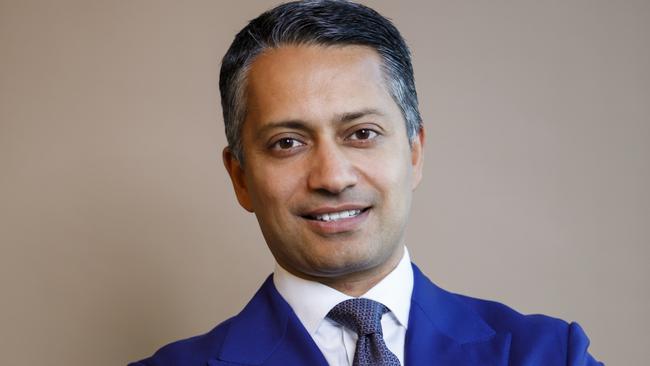
Beeneet Kothari, Tekne Capital
Pick: Didi Global (DIDIY: OTC US)
New York fund manager Beeneet Kothari, founder and chief executive of Tekne Capital Management, pitched a stock with “red flags written all over it” - a China tech stock, with a pink sheet listing, and a regulatory takedown story inside of it: Chinese ridesharing heavyweight Didi Global.
The hedge fund focused on long/short and alternative long-only equities positions.
Kothari, who last appeared at the conference in 2021, flew in to spend just hours at the Adelaide conference on Friday.
After a disastrous delisting from the Hong Kong stock exchange, Didi is ready for a comeback, Kothari says. “We believe this stock will deliver outsize uncorrelated returns.”
Didi, more than 15 per cent larger than its nearest listed peer, is an integral part of China’s mobility infrastructure, he argues.
“Its source of mispricing stems from being in the wrong place at the wrong time, across three vectors: in asset class, listing venue, and regulator pressure -- which is retrospective.”
On the regulatory side in China, it’s now on the other side of its woes, with a clean bill of health granted, setting the scene for a Hong Kong relisting. Kothari believes will take place in 2025. “The IPO window is now open as mega listings are just beginning to make a comeback in Hong Kong.”
Didi’s founders have also recently collapsed their holding - this sets the scene for market returns.
“After its ill-fated IPO of three years ago it’s been hitting milestones in every major financial metric this year ... except stock price. That’s the opportunity.”
“It’s never been stronger ... We see a rapid and predictable profitability curve as Didi extracts value from a very benign operating landscape.”
In a “blue sky” scenario, overhauling its fleet with robot cars would triple the company’s profits by reducing its largest cost, which is labour, Kothari believes.
But even based solely on fundamentals, “we believe this stock can give well over 25 per cent rate of return in the next two years ... with further upside risk from buy backs.”
Jeremy Bond, Terra Capital
Pick: Couer Mining (NYSE: CDE)

Jeremy Bond is chief investment officer at Terra Capital, the Sydney based specialist investor focused on the natural resources space.
Bond founded Terra Capital in 2010 at age 28, riding the copper, lithium and clean energy thematics on behalf of its wholesale and sophisticated investors.
His pick at last year’s Sohn conference, NexGen Energy, has gained 15.3 per cent over the past 12 months.
Bond’s 2024 stock pick, silver producer Couer Mining, is listed on the New York stock exchange. The company has five operating mines, mostly in North America and Mexico.
Couer has been hit with problems in the development of its Rochester mine, with debt blowing out as the operation’s development time and cost expanded.
In 2023 it stood with a heavy debt load, at 4 times EBITDA.
“But Rochester has come on to turn the tables, and it now operates at debt of 1.5 times, by next year it will be debt free,” Bond says..
“These are the sort of companies you want to own in mining: that are generating cash.”
Couer, Bond says, has the highest beta to silver of any miner in its sector, and also has “a nice beta” to gold.
A merger with Canadian miner SilverCrest, currently underway, will also boost its market capitalisation - “important in the world of passive flows,” Bond adds.
The merger will make it the largest producer of silver in the world. “It will generate more free cash flow than any other silver miner.”
Its current sharemarket underperformance - historically low for the company - should soon end, says Bond.
“Its two biggest competitors trade at much higher multiples right now. It should trade if not in line, then better than its peers.”
More broadly, he adds, silver has industrial uses that many do not understand or appreciate. As the demand for solar has increased so too has the demand for silver.
China and Elon Musk have recently come out bullish on silver, a metal whose global supply continues to fall.
“We think [Coeur] has much further to go, and it’s the one to own in a bull market.”
Chris Kourtis, Ellerston Capital
Pick: Perpetual (ASX: PPT)
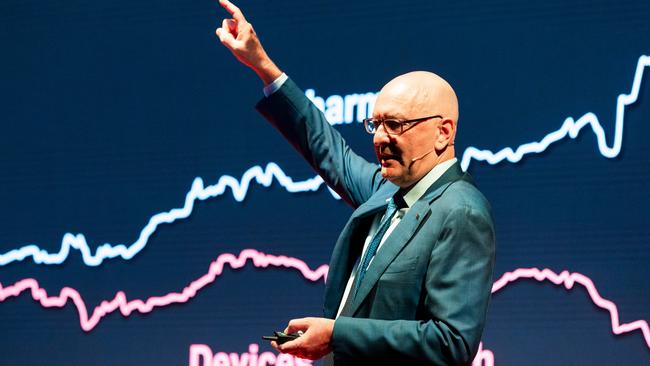
Chris Kourtis is an avowed contrarian investor, with over 40 years experience. He’s no stranger to picking an unloved stock and winning. Ellerston Capital, headquartered in Sydney, has over $5bn invested in traditional and alternative assets.
Kourtis’s stock pick of 2023, ResMed, has gained more than 60 per cent in the last 12 months. That’s an outperformance of the Nasdaq by more than two times.
“It’s very controversial,” Kourtis had teased of his proposed stock tip ahead of the conference, which raises money for medical research.
“It (the stock he will tip) has bombed out,” he said. “It’s probably the most hated stock in Australia.”
His pick in Adelaide didn’t disappoint the room.
“The patient I’m diagnosing today, is suffering from a severe case of shareholder wealth destruction - it’s Perpetual,” he said.
“Perpetual is at a 20-year low. It wasn’t that long ago the stock was at $80. The problem has been very poor leadership at the very top, poor capital allocation and woeful execution.
Deals in recent years - including Pendal the last acquisition $2bn - diluted their debt profile, and the market cap of the whole company is only about $2,3bn, Kourtis said.
“We voted the remuneration report down - we’re not going to reward for poor execution.
“So where are we now? KKR have agreed to buy them - there’ll be some debt repaid, separation costs, net adjustments - but at the end of the day, shareholders are going to receive about a billion dollars.
“What does that leave us with? A high-quality operating platform, $2.2bn AUM, we all know the brands. Importantly 70 per cent of their FUM, is about to over perform the benchmark.”
The problem with Perpetual has been empire building, and their cost base, Kourtis said. They have 78 people in legal, compliance and risk. Forty people in HR, you walk into their Pitt Street office its like the Taj Mahal, fit for a Saudi prince. That’s going to get sorted out.”
“It will be the cheapest listed asset manager of scale in the universe.”
Peers are valued around 8-9 x EBITDA, Kourtis said.
“The implied enterprise value of Residual Co is going to be under 4x EBITDA. That is cheap!”
Rikki Bannan, IFM Investors
Pick:Corporate Travel Management (ASX: CTD)
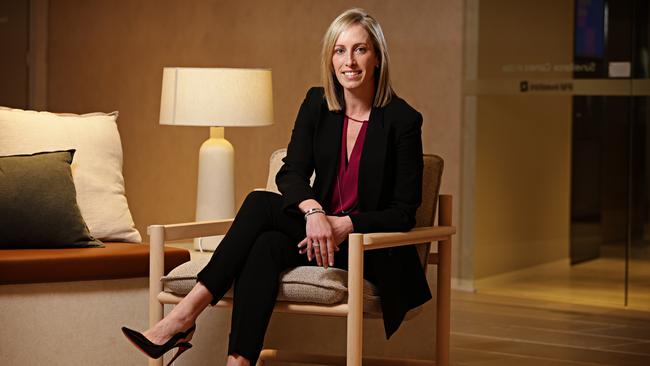
A small-cap specialist, Bannan said she believes the space is widely misunderstood - and, after a few tough years, this year could be a great time to dive in.
“Mispriced opportunities tend to be more prevalent in the small cap sector. It could be a good time to be investing in the space,” she said ahead of the conference.
“It’s been a tough couple of years for small caps, but this might be the year for them,”
Bannan’s stock tip at the last Sohn Australia conference last November – ASX-listed bio tech company Telix Pharmaceuticals – has shot up more than 140 per cent in the past 12 months. She tipped another small cap at this year’s Sohn conference in Adelaide.
Founded by 1994 as a two person band, Corporate Travel Management IPO’d in 2010, and was worth $28bn in market value by 2015 - a 50-fold increase in value based on natural growth and acquisitions. Hit by Covid, like its peers, its strong balance sheet meant it needed no cash injection to see it through.
Global corporate travel is a highly fragmented industry - and with 1 per cent of global market share, it makes Corporate Travel Management a top 10 global operator.
However, its share price has fallen from highs above $20 in January to less than $14 now.
“Why is it this fall represents such a compelling value opportunity?”
“Having been a consistent outperformer over most of its life, CTD has missed expectations on three separate occasions over the past 18 months, which has seen expectations rebased by some 40 per cent, an outcome we think is overly negative.”
“Our analysis suggests CTD can grow its revenue at 3-year earnings of 15 per cent.”
“This is even before we consider the company’s ability to deploy its balance sheet through acquisition.”
The stock is also poised to benefit from disinflation in airline ticket travel prices, Bannan says.
“Pack your bags, buy your discount fare, and board the train because this stock is going to take off.”
Sumit Gautam, Scalar Gauge Fund
Pick:BlackLine (Nasdaq: BL)
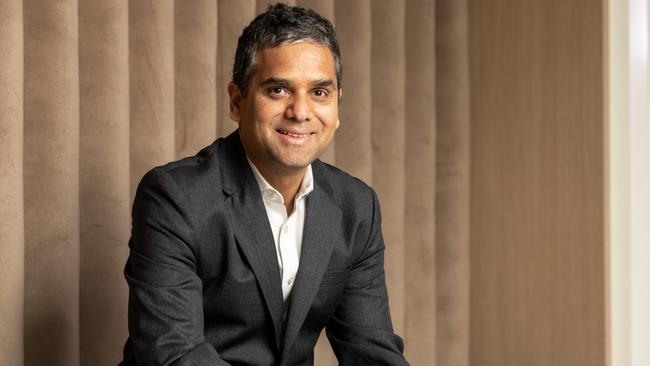
Described by some as an activist investor, Gautam prefers to focus on the “value creation” that comes with a more hands-on approach, including working closely with management to drive performance and at times pushing for board representation, as it recently has with billing software company Zuora.
In seven years running the fund, 37 of its investment companies have been acquired, with many going public.
His stock pick, BlackLine, operates in the accounting software market. Its against a background where the number of chartered public accountant candidates has been steadily declining in the past 10 years. Meanwhile, the complexity of accounting requirements has increased.
“The back office software needs better and modern tools,” he says.
“Companies like SalesForce, are well known ... but when you look at back office, those segments are less than 10 per cent cloud printed. So that means companies targeting those segments have a long way to run.
“If the penetration was only 10 per cent in the last decade, why would this grow going forward? That’s what I’m here to answer today.
“Many US companies have an end of life for their platforms of around 2027 - many companies are going to upgrade in the next two years.
Nasdaq listed BlackLine attends back office functions like monthly reconciliation.
High 90s growth retention rates, sticky customer base , they are the market leader. “BlackLine is the undisputed market leader in this sector.”
“This is a rule of 50 company, we think there’s 80 per cent upside in this company going forward.”
In 2017 Gautam launched Dallas-based Scalar Gauge Fund, a specialist platform that adopts a “private equity style of investing” to its holdings of predominantly in US-listed enterprise technology and software companies.
The fund has grown to around $US200m in assets under management, including a mix of passive investments and other companies where Gautam sees an opportunity to add value.
Samir Mehta, JO Hambro’s
Pick: TenCent Music (NYSE: TME)

Residing in Singapore, Samir is a senior portfolio manager at London headquartered JO Hambro Asset Management , responsible for its Asia ex-Japan fund. He has more than 30 years’ industry experience and joined the fund manager in 2011.
“I want to focus people’s attention on thinking around this country, that many say is uninvestable,” he said (of China).
With one eye on Beijing’s efforts to revive the Chinese economy, Mr Mehta is sticking to his well-worn strategy: he’s hunting for companies across Asia that aren’t battling intense competition and have management teams focused on costs, cash generation and high payouts to shareholders – and he’s using AI to do the early legwork.
His pick is the Chinese company called Tencent Music.
“The music industry as we know has undergone a significant change. And who is the Bob Dylan of streaming, without a doubt it’s Spotify... and even though the have competitors like Amazon Prime, they are without a doubt the best player in streaming,” he says.
But there’s lots of other markets that still have a lot of penetration to go - in terms of percentage access, he adds.
“When we look at the average revenue per user [around the world], here too there is a lot of potential upside.... the trend is in the right direction.
Tencent Music’s New York listing is an advantage, he adds. “When we look at markets that have high potential ... there’s only one country at the moment that from a stock market perspective enjoys the moniker of the [biggest] of stock markets.
Among other supportive thematics, the population is big in China, and music everywhere in the world has the same trends.
Tencent Music is owned 52.5 per cent by Tencent, has an $US18bn market cap, a $US1bn buyback completed last year and $US500m buyback still in process.
“Generating cash and buying back stock is not something you associate with Chinese companies - Tencent is one of those doing exactly what you and as minority shareholders what you want them to do.”
In addition, the Chinese Communist Party has forced Tencent Music to take regulatory responsibility for all the music on their platform, which has sharpened the business, Mehta says.
“We are now progressing towards a healthy development of the Chinese music industry. It is well within the regulatory requirements that the government requires.”
Close to 70 per cent of Tencent Music’s revenue comes from online music - subscriptions and ads - and it’s growing at 20 per cent per annum year-on-year, says Mehta.
“I’m just hoping that this conference does for Tencent Music what SugarMan documentary did for Rodriguez.”
Fleur Wright, Northcape Capital
Pick: Estee Lauder (NYSE: EL)
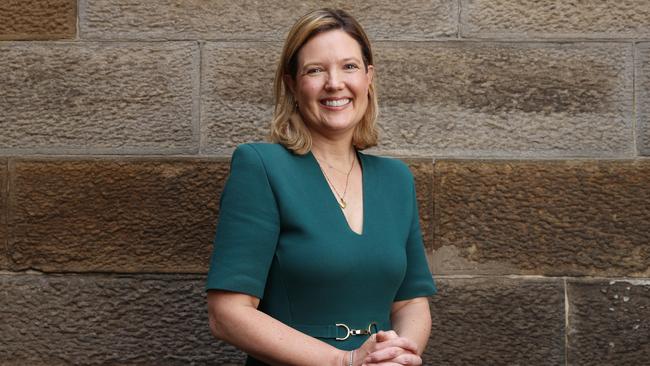
Sydney-based Fleur Wright is a portfolio manager (global equities) at Northcape Capital, an international boutique fund manager fully owned by its staff.
Established in 2024, and now with more than $10bn in funds under management, Northcape focuses on concentrated equities positions.
Recently, Wright has ridden the volatility of Nvidia’s share price, trading around its shifting valuation.
At her debut Sohn Hearts & Minds Investment conference on Friday, Wright chose Estee Lauder as her stock pick. “Women use a staggering 16 beauty products and that’s just for the morning routine,” she said. “What’s more it makes economic sense as evidenced by a beauty premium - that is, more attractive people earn more.”
With a $US25bn market cap, Estee Lauder has over 20 well known premium beauty brands.
As a high quality business, it meets all of Northcape’s quality principles, meaning it can sustainably deliver returns above its cost of capital, reinvest and grow, Wright says.
“Since 2022, it has outperformed the US market by a factory of five.”
Estee has traded historically at a premium of 1.7 times the broader market. But Northcape, which has held shares since in it since 2017, still benefited well from its expansion into China, Covid-based rise of e-commerce, among other factors which have boosted premiums over the holding period.
Post pandemic, however, Northcape sold out as Estee suffered. Its historically low valuation makes it a smart buy today, Wright says.
“China didn’t reopen, the party slowed, US and other revenge spend (post pandemic) abated. Estee found itself with too much stock in the wrong place at the wrong time.
but I’m here to tell you the worst is over. Estee remains a quality business and I’m buying it again – this time at what is a bargain price.”
In the near future, Wright says, Estee Launder will benefit from its huge scale economies in marketing, R&D and manufacturing, as macro trends support the sector.
Among those trends, spending per capita has room to grow, given aging western country demographics. “We tend to spend more on beauty products when we age”. Additionally, new growth categories are opening up like home fragrances through technological innovation. The Instagram generation is starting to use make-up at younger ages, and men are also increasingly significant purchasers of cosmetics.
China stimulus recently announced could also benefit Estee’s sales, Wright says.
“Its brand reputation is really hard to beat and leaves it well placed in the industry. It has had mid single digit plus organic sales growth for over 30 years.
“After the recent years of declines, Estee can grow again.”
Vihari Ross, Portfolio Manager at Antipodes
Pick: Airbus (EPA: AIR)
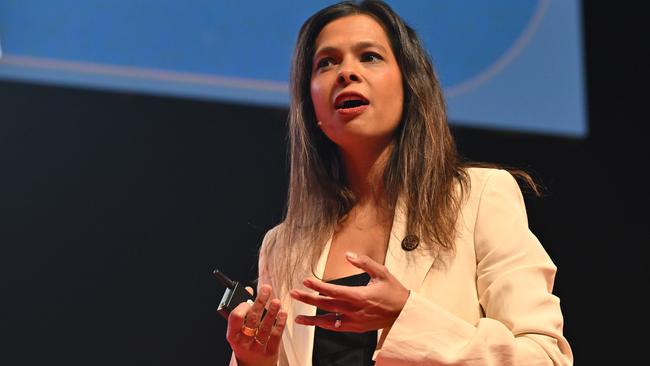
Portfolio manager Vihari Ross joined Antipodes Partners in 2023, after 15 years with Magellan. Antipodes is a high-conviction investor, value manager with more than $8bn in assets under management.
Ross’s first appearance at Australia’s Sohn Hearts & Minds conference highlighted the potential of the travel sector with stock pick Airbus, listed in Paris.
Airbus has a $US110bn market cap, and is 25 per cent owned by the French, German and Spanish governments.
“The part that really matters is the commercial space, where they develop airplanes, they are part of a duopoly in this space.” The reason that this business is compelling today is because of this set-up, Ross says.
Across its sector, supply chain constraints have not yet completely resolved, she adds. Meanwhile, macro trends are favouring demand growth for narrow bodied planes over their larger cousins - a space where Airbus is a leader against its only competitor, Boeing.
Jordan Katz, Advent Global Opportunities
Pick: TransDigm (NYSE: TDG)
Boston based Jordan Katz is a partner and senior investor at New York based hedge fund Advent Global Opportunities - one of the world’s pre-eminent private equity firms.
Advent, with around $US100bn AUM, is a concentrated, high-conviction manager focusing on private and pre-IPO companies.
Appearing at Adelaide in person, Katz spruiked a stock in the aviation industry.
TransDigm manufactures a wide variety of aerospace products, from valves to seatbelts, with 85 of its EBITDA coming from the aerospace aftermarket.
“There’s no alternative for 75 per cent of the products TransDigm makes,” Katz says, adding that large aircraft will have a couple of millions of parts in its construction.
Most of the products TransDigm makes are proprietary, sole sourced and need to be replaced frequently in the aftermarket. “This becomes like a subscription service on steroids: When a company buys a plane from Boeing they’re entering into a forty-year subscription service with the aftermarket servicer.”
Sometimes, they pay 100x the original part price for replacements.
“And [global] travel increases 5-6 per cent every year.” Airbus and Boeing have been unable to keep up with this trend as of late. Fleets are aging, and Katz expects they will continue to do so over the next decade.
Ricky Sandler, Eminence Capital
Pick:Cellnex Telecom (BME: CLNX)

Headquartered in New York, Eminence Capital is a global asset management firm focused on long/short and long equities investing, with around $US7.6bn under management.
Founded by Ricky Sandler in 1999, it’s staffed by around 20 investment managers with diversified portfolios across most sectors of the market.
At last year’s Sohn Hearts & Minds Investment conference, Sandler picked Tokyo-listed Canon (TYO: 7751) as a short position.
The stock has since risen 35.8 per cent, but Sandler’s enthusiasm wasn’t dimmed on Friday as he dialled in by video link at midnight, New York time.
“Things are a little wild after the US election at the moment, and they wouldn’t let me out of the office,” he says.
His 2024 stock pick is mobile phone tower builder Cellnex Telecom, which operates in Europe.
It’s a prime player in a critical infrastructure sector, supporting a growth industry, he says. “Towers are [like] a growth, perpetual bond.”
Cellnex traded at 34x EBITDA before the pandemic but has bottomed out at around 17x EBITDA in 2022, with a 30 euro stock price at that time. Its price and valuation have traded largely flat since, despite significant improvements in its financial reporting and corporate governance that he reckons make it ripe for a comeback.
That includes divestment of some lower performing assets in smaller European countries. It also has opportunities to grow by signing co-tenants on its towers, he says.
With US phone tower operators trading around 20x multiples, Katz thinks Cellnex can outperform its US counterparts in a couple of years.
In 2025, he expects Cellnex will return capital to shareholders, primarily through buybacks.
“Interest rates remain a risk but we think that’s manageable, especially in Europe,” he says. “In some ways it is a bet on a sluggish economy in Europe, which will keep interest rates largely flat in the next few years.”
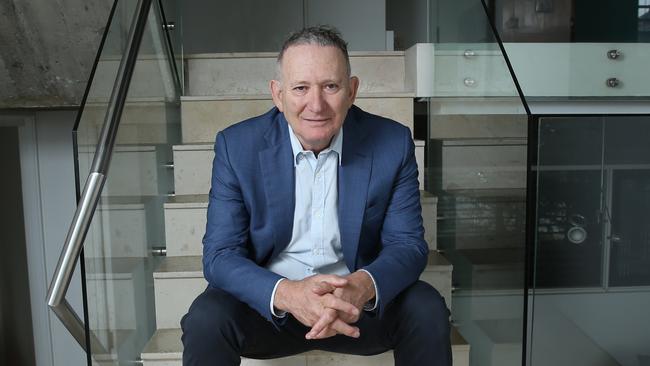
Alex Pollak, Loftus Peak
Pick: Eli Lilly (NYSE: LLY)
Star stock picker Alex Pollak is the Sydney based founder and chief investment officer of fund manager Loftus Peak, with around $US150m in assets under management.
His philosophy is focused on investing in disruptive technology, with the potential to revolutionise existing business models. A lot of the time it is technology focused.
Pollack rode the Nvidia wave from 2016, before selling out earlier this year, believing value could be better found elsewhere in the AI sector. The Loftus portfolio has also included well known names like Google, Apple and Alibaba.
Delighting attendees at Friday’s conference, he played a 2016 video spruiking Nvidia, demonstrating its AI prospects.
“This was a significant part of the curiosity in AI that we at Loftus Peak then went through ... it put us into AI, and it told us that we need to be in Nvidia,” he says.
He contrasts this story to the context around today’s stock pick, US-listed drugmaker Eli Lilly.
“Fast and break things doesn’t work perfectly all the time. One place it has not worked so well is in the Food and Drug Administration in the US. You move fast and break things, people die.
“But it would be a mistake to think that the behind the scenes, that has been very much alive in this time, has not been in drug discovery in the US.
Eli Lily is important because it has a seven-year headstart, with Denmarks’s Nova Nordisk, in the development of Glimp-1 based weight loss drugs, he says.
With a market cap at three quarters of a trillion US dollars, Eli Lilly now trades on a PE ratio of 35.9
“Our view is that it’s cheap at 35c because no one’s really done the investment arithmetic of what the target addressable market is. Let me tell you it is huge, it is absolutely huge,” Pollak says.
“Obesity is a factor in tons and tons of other related diseases. It’s one million deaths [annually] as a result of obesity related complaints.”
Currently, Eli Lilly is priced by the market as if Glimp-1 is a diabetes cure, when in fact its addressible market is actually ten times that size, Pollak says, due to the implication of obesity in so many other diseases. “It’s a billion (people).”
“It’s not long away until your doctor says to you in his surgery, ‘Look, you’re 45 years old, you’re a little overweight, take this drug. Why? Well you’ll work it out in 10 or 15 years when you don’t get heart disease or a stroke’,” he says.





To join the conversation, please log in. Don't have an account? Register
Join the conversation, you are commenting as Logout